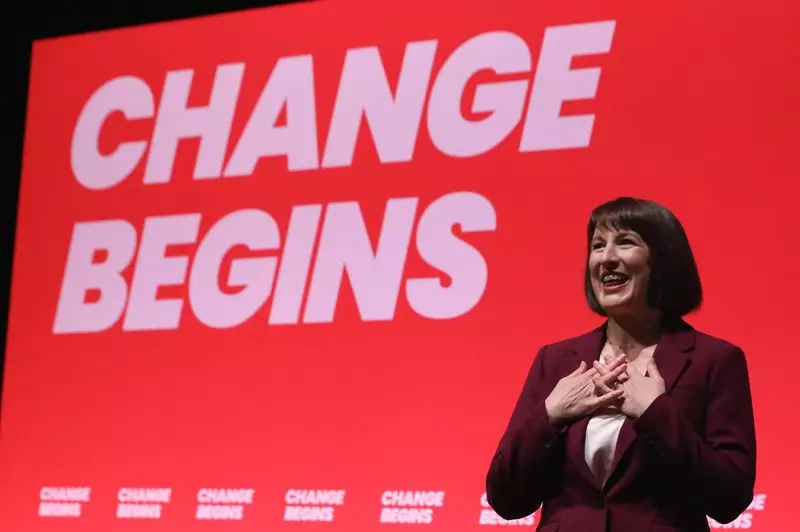In the aftermath of a significant political shift resulting from the July elections, British finance minister Rachel Reeves has stepped onto the stage to recalibrate the financial narrative surrounding the Labour Party and the wider UK economy. With her recent address at the party’s annual conference in Liverpool, Reeves sought to quell fears of a return to austerity measures while painting an optimistic picture for the nation’s future. However, the disconnect between her hopeful rhetoric and the harsh economic realities presents a daunting challenge.
The Labour Party’s ascendance to power occurred against a backdrop of public frustration with the previous Conservative government, which had adopted severe austerity measures following the 2008 financial crisis. These measures, intended to stabilize the economy, instead sparked widespread criticism for their detrimental effects on public services and social welfare. Reeves’ assertion that there would be “no return to austerity” was not just a promise; it was a direct rebuttal to the Conservative legacy that had left significant fiscal shortfalls and created a culture of budget cuts.
By emphasizing the need to bridge the financial gap left by the previous administration, Reeves aimed to acknowledge the complexities of her party’s incoming governance. Yet, her insistence on avoiding austerity raises questions about the practicalities of funding ambitious plans for public investment and welfare reform. How will the Labour government finance its initiatives without tapping into traditional revenue streams or austerity measures?
Reeves’ aspirations for a prosperous Britain include substantial investment in manufacturing, services, and community development, echoing a broader vision of an economically rejuvenated nation. However, her remarks lacked detailed strategies to translate this vision into actionable policies. While she mentioned launching free breakfast clubs for primary school children—a noteworthy initiative aimed at tackling child poverty—the absence of a clear economic roadmap left many attendees at the conference and the public at large pondering the feasibility of her hopes.
The question remains: can Reeves genuinely foster an environment where “work pays a decent wage” without the underlying structural changes that are arguably necessary? The desire for growth and a thriving job market is palpable, but lack of specifics diminishes confidence in the party’s ability to deliver. Moreover, by withholding details on how to achieve these lofty goals, Reeves risks being perceived as optimistic without the backing of a solid plan.
Reeves acknowledged the challenging choices ahead, particularly her controversial decision to cut winter fuel payments for pensioners. This move illustrates the tightrope that Labour must walk: balancing fiscal responsibility with the provision of essential services amid rising living costs. Her reassurance that overall public spending would increase under Labour might pacify some critics, yet the absence of substantial tax increases seems contradictory to the notion of sustainable growth.
Furthermore, her insistence that “political stability” would attract business investment underscores a reliance on external factors that may be beyond the government’s control. The imperative to do more with current resources complicates an already precarious position for Reeves as she confronts dissatisfaction from varying stakeholders, particularly as public sector unions, such as nurses in the NHS, increasingly voice their discontent over pay.
In response to accusations of financial impropriety within the previous administration, Reeves announced the appointment of a COVID corruption commissioner to investigate alleged mismanagement of pandemic contracts. This initiative is undoubtedly essential for restoring public trust, yet it also highlights the lingering issues that the Labour government must tackle. The perception of a government plagued by corruption can stifle investment and economic growth at a critical juncture.
While Reeves’ vision may be ambitious, it is fraught with complications. The tensions between maintaining optimism and addressing harsh realities reflect the challenges that lie ahead for her and the Labour Party. A balance must be struck between inspiring hope and providing tangible solutions to the pressing economic issues facing the nation.
As the UK navigates its complex post-pandemic landscape—amid investment deficits, public sector tensions, and a fragile economic environment—Reeves’ leadership will be central to determining whether her aspirations for Britain can materialize into effective policies that truly uplift the populace. The coming months will be crucial in assessing whether Reeves can translate her rhetoric into real change or if her optimism will be rendered hollow by the weight of unmet expectations.

